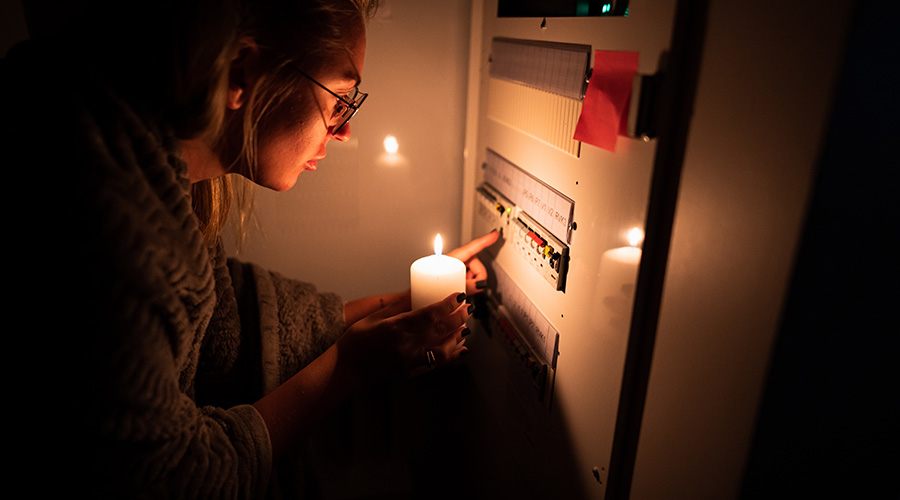A serious infectious threat response initiative (SITRI) implemented by the Infection Prevention and Control (IPC) team at Veterans Affairs North Texas Health Care System (VANTHCS) positively impacted IPC staff burnout and helped prevent an increase in healthcare-associated infections (HAIs) during the COVID-19 pandemic. The findings, published in the American Journal of Infection Control (AJIC), suggest that pre-emptive investment in preparedness initiatives can enable healthcare facilities to retain routine prevention efforts and improve patient safety during infectious disease outbreaks.
The IPC team at VANTHCS, which is the second largest healthcare system in the Department of Veterans Affairs, formed the SITRI in 2015 in response to a Veterans Health Administration mandate for ongoing emerging-pathogens preparation following the most recent Ebola epidemic. The SITRI comprised multi-disciplinary staff who developed an algorithm to enable an effective process for communication, safe handling, assessment and care of patients presenting with emerging pathogens.
When SARS-CoV-2 emerged in early 2020, the VANTHCS IPC team identified specific gaps and emerging issues, including staff member anxiety, COVID-19 knowledge deficit and personal protective equipment (PPE) and testing supply shortages. To address these gaps and reduce any potential impacts on VANTHCS staff and the healthcare system’s infection prevention practices, Dr. Sopirala and colleagues adapted their existing SITRI program to enhance staff support, facilitate day-to-day clinical operations related to COVID-19 and enable maintenance of routine prevention focused efforts.
This adaptation included evolving SITRI into a 24/7 call service staffed by infection preventionists and a hospital epidemiologist who was also an infectious diseases physician. SITRI infection preventionists also conducted other critical support activities, including COVID-19 surveillance, data abstraction, exposure management and public health reporting. The SITRI team then evaluated and quantified the workload and utility of SITRI, burnout among the system’s infection preventionists and HAI incidence across VANTHCS during the SITRI implementation period.
Results from this evaluation show:
- SITRI received 3,816 calls from hospital staff from January 1, 2020 -March 27, 2021. There was a statistically significant correlation between the number of phone calls SITRI received in a given week and the weekly average census of COVID-19 hospital admissions (0.438; p=0.00026).
- Staff members reported lower levels of both exhaustion and reduced achievement in 2020 and 2021 as compared to 2019. Depersonalization (i.e., the feeling that a job is hardening someone emotionally) increased gradually from 2019 to 2021, a finding the authors suggest could be associated with pandemic-related compassion fatigue.
- Rates of four common HAIs [central line associated blood stream infections (CLABSI), catheter associated urinary tract infections (CAUTI), methicillin resistant Staphylococcus aureus (MRSA) and Clostridioides difficile (C. diff)] decreased or stayed the same in VANTHCS acute care and long-term care centers during the implementation period. The authors suggest that this outcome was at least partly attributable to SITRI enabling the IPC team to retain its routine functions – including HAI surveillance, audits, and feedback – throughout the pandemic.
- The overall cost of the initiative for the 14 months from March 2020 to May 2021 was $360,000, based on overtime paid to IPC staff covering the SITRI line.

 Building Sustainable Healthcare for an Aging Population
Building Sustainable Healthcare for an Aging Population Froedtert ThedaCare Announces Opening of ThedaCare Medical Center-Oshkosh
Froedtert ThedaCare Announces Opening of ThedaCare Medical Center-Oshkosh Touchmark Acquires The Hacienda at Georgetown Senior Living Facility
Touchmark Acquires The Hacienda at Georgetown Senior Living Facility Contaminants Under Foot: A Closer Look at Patient Room Floors
Contaminants Under Foot: A Closer Look at Patient Room Floors Power Outages Largely Driven by Extreme Weather Events
Power Outages Largely Driven by Extreme Weather Events